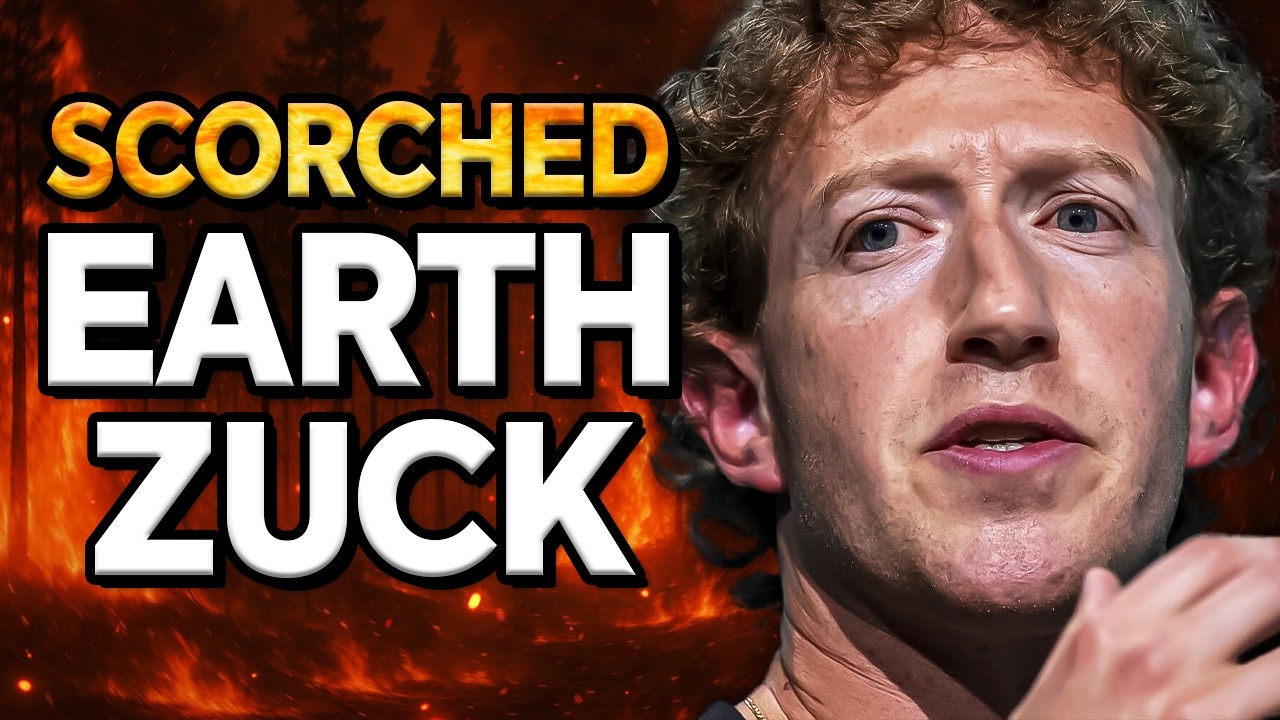Mark Zuckerberg is aggressively building Meta’s super intelligence team by poaching top AI talent from competitors like OpenAI and Google, backed by strategic investments such as acquiring a stake in Scale AI and offering massive signing bonuses. This high-stakes competition has led to the formation of Meta Super Intelligence Labs, led by Alexander Wang and Nat Friedman, aiming to dominate the AI landscape with a star-studded team focused on achieving super intelligence.
The video reveals Mark Zuckerberg’s aggressive strategy to build Meta’s super intelligence team by poaching top AI researchers from competitors like OpenAI, Anthropic, and Google. Following the release of Llama 4, which was good but not enough for Meta to lead the AI race, Zuckerberg personally compiled a secret list of the best AI talent and made massive offers, including $100 million signing bonuses, to recruit them. This move came shortly after Meta’s $14 billion investment to acquire a 49% stake in Scale AI, a company specializing in data infrastructure for AI, led by the highly regarded CEO Alexander Wang, who was then appointed to lead Meta’s new super intelligence team.
The acquisition of Scale AI was strategic not only for its data capabilities but also for its exceptional team. Meta’s minority stake allowed for a faster deal, avoiding lengthy regulatory reviews, but it also led to OpenAI and Google canceling their contracts with Scale AI to avoid sharing data with a competitor. Despite this, Zuckerberg secured the talent and data he needed, with Alexander Wang transitioning from Scale AI to spearhead Meta’s super intelligence efforts. Meta’s poaching spree intensified, including the entire Zurich office of OpenAI, which housed some of the best researchers behind ChatGPT and other advanced AI models.
OpenAI responded to this talent drain with urgency. Mark Chen, OpenAI’s chief scientist, leaked an internal memo expressing a sense of violation and promising to recalibrate compensation and improve retention strategies to compete with Meta’s lucrative offers. OpenAI acknowledged the challenge of matching Meta’s financial power, given Meta’s massive market capitalization and cash reserves compared to OpenAI’s relatively smaller private company status. Chen emphasized fairness in compensation but recognized the need to act swiftly to prevent further losses of top talent.
Zuckerberg officially introduced Meta’s super intelligence team, now called Meta Super Intelligence Labs (MSL), which consolidates various foundational, product, and research teams under one umbrella. Alexander Wang was named chief AI officer, co-leading the lab with GitHub CEO Nat Friedman, focusing on AI products and applied research. The team includes a star-studded lineup of AI pioneers responsible for breakthroughs in reinforcement learning, multimodal models, and reasoning systems, many of whom were key contributors to OpenAI’s GPT series and DeepMind’s Gemini project.
The video concludes by highlighting the significance of this all-star team working relentlessly toward the singular goal of achieving super intelligence. It underscores the high-stakes competition between Meta and OpenAI, with Meta leveraging its vast resources to dominate the AI landscape. The narrator also promotes a prompt engineering guide created by their team to help users maximize the potential of these advanced AI models, inviting viewers to like and subscribe for more updates.
